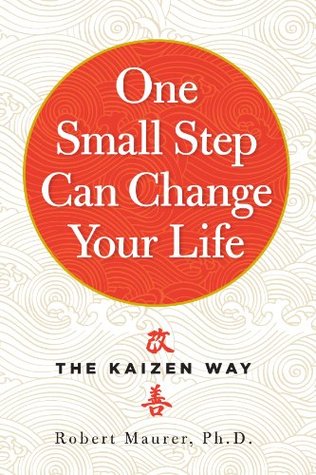More on this book
Community
Kindle Notes & Highlights
Read between
June 2 - June 12, 2022
“No act of kindness, no matter how small, is ever wasted.” —Aesop, “The Lion and the Mouse”
Think hard before deciding on a small reward. You want the reward to have these three qualities: The reward should be appropriate to the goal. For Karen Pryor, chocolate was a perfect encouragement to get to class—a small, harmless indulgence. But for the man told by his doctor to cut back on unhealthful foods, chocolate would be counterproductive. The reward should be appropriate to the person. If you’re trying to encourage another person to achieve a goal, remember that one person’s reward is another person’s annoyance. For some people, it’s a great boost to receive a compliment every time
...more
The reward should be free or inexpensive. You may need to look no farther than your living room. People with all-consuming family lives often find that ten minutes a day with a book or newspaper is a treat. I’ve known several stay-at-home moms who would like to relax in front of a little daytime television but feel compelled to perform chores instead. If losing weight is one of their goals, I usually suggest they grant themselves permission to watch TV—as long as they are exercising in some way while it’s on.
“Most of us miss out on life’s big prizes. The Pulitzer. The Nobel. Oscars. Tonys. Emmys. But we’re all eligible for life’s small pleasures. A pat on the back. A kiss behind the ear. A four-pound bass. A full moon. An empty parking space. A crackling fire. A great meal. A glorious sunset. Hot soup. Cold beer. Don’t fret about copping life’s grand rewards. Enjoy its tiny delights. There are plenty for all of us.” —from an advertisement for United Technologies Corporation
But many great moments of progress come out of a workaday attention to the little things.
Paying attention to small moments may sound easy, but it takes respect, imagination, and curiosity.
When you’re implementing a plan for change but find yourself bored, restless, and stuck, look around for hidden moments of delight.
“The true creator may be recognized by his ability to always find about him, in the commonest and humblest thing, items worthy of note.” —Igor Stravinsky
“To be really great in little things, to be truly noble and heroic in the insipid details of everyday life, is a virtue so rare as to be worthy of canonization.” —Harriet Beecher Stowe “Do your little bit of good where you are; it’s those little bits of good put together that overwhelm the world.” —Desmond Tutu
Another application of kaizen to relationships is allowing ourselves to be interested in the small details of our partner’s life.
One mistake many people make during this process is to praise their partners only for their actions. “You’re such a good cook,” we say, or “you did a great job trimming the hedges.” But if your partner receives compliments only for the services he provides, he may begin to feel like an employee. Instead, try to identify one moment each day during which you can praise your partner’s personality or appearance. Try “I love the way your hair looks in the morning,” or “I love how excited you get on the way to the movies.” Acknowledging these small moments reassures your partner that she is loved as
...more
“Turning toward your spouse in the little ways is also the key to long-lasting romance. Many people think that the secret to reconnecting with their partner is a candlelight dinner or a by-the-sea vacation. But the real secret is to turn toward each other in little ways every day.” —John Gottman
As you experience success in applying kaizen to clear goals like weight loss or career advancement, remember to hold on to its essence: an optimistic belief in our potential for continuous improvement.
I hope I’ve convinced you that kaizen is a powerful method for achieving clear, stand-alone goals or fixing troublesome behaviors. The beauty and the challenge of kaizen is that it requires faith. Not necessarily religious faith, or a rigid and unthinking commitment, but a belief in the power of your body and brain to carry you where you need to go. By taking small steps, you set your mental compass in a new direction, allowing your mind to do the rest.
This faith often takes the form of a gentle, patient attitude in the face of challenges. It doesn’t matter whether those challenges are seemin...
This highlight has been truncated due to consecutive passage length restrictions.
What more important task does this life hold than to draw out the possibility in each moment?


